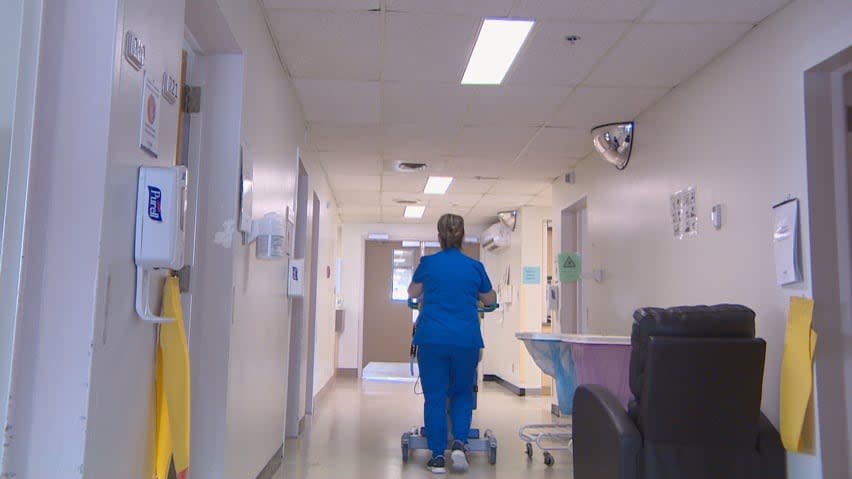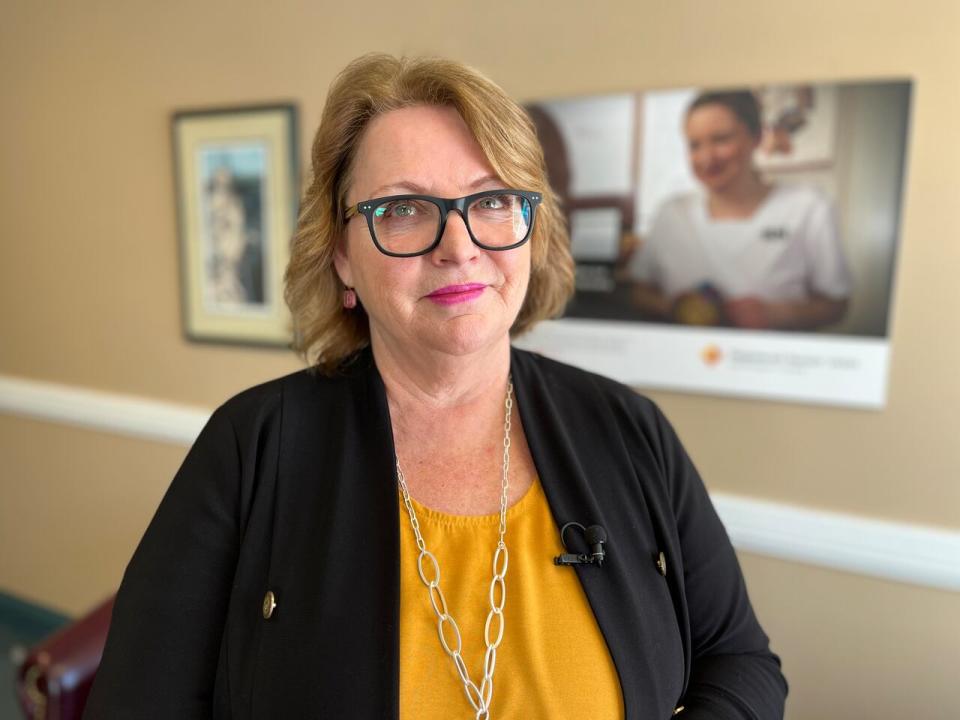National nurse practitioner association calls for N.L. to embrace public funding model


Nurse Practitioner Association of Canada CEO Stan Marchuk says there isn't a simple solution to funding health care. (Radio-Canada)
Calls are mounting to allow private nurse practitioner clinics the ability to bill Newfoundland and Labrador's public health-care system, but the head of the province's nurses' union is worried that could pull nurses into private practices.
Currently, nurse practitioners in Newfoundland and Labrador can set up private clinics but cannot bill their services to the provincial Medical Care Plan (MCP) and patients have to pay out of pocket.
Last month the Newfoundland and Labrador Nurse Practitioner Association submitted a funding model proposal to the provincial government that would allow nurse practitioners to bill the province for its services.
It's a move welcomed by Stan Marchuk, chief executive officer of the Nurse Practitioner Association of Canada.
"We need to modernize the way in which health care is delivered," he recently told CBC News.
However, Marchuk said there hasn't been much movement to embrace the model in N.L.
"They've been stymied-in quite a bit by government, which I think is really unfortunate," he said.
"I do think that they're missing the mark. You know, what's the barrier? Why not have the political will to move forward?"
LISTEN | The CBC's Bernice Hiller speaks with Nurse Practitioner Association of Canada CEO Stan Marchuk:
Marchuk said he isn't worried that nurse practitioners might leave the public health-care system to set up their own clinics.
"I don't see that to be the case because I think there's already precedent in the country that says otherwise," he said.
"I think it's like anything, you know, you have to create opportunity. And I don't think that in Newfoundland they have created opportunity for a long, long time — despite asking for it."
Marchuk said Alberta is moving to bring in a new payment model so that nurse practitioners with a practice are paid directly by the province.
Drain on public health-care system
Yvette Coffey, president of the Registered Nurses' Union of Newfoundland and Labrador (RNUNL), said she's hearing patients are being charged up to $75 for a visit with a nurse practitioner in private clinics.
"We need to have nurse practitioner-led clinics under the public health-care system, under N.L. Health Services, to meet the needs of patients in the province," she said.
She worries that the model being proposed would pull nurses out of the public system or it could appeal to recent nursing graduates because they might see it as a way to avoid being micromanaged.

Yvette Coffey, president of the Registered Nurses’ Union Newfoundland and Labrador, says no one should ever have to pay for health care. (Peter Cowan/CBC)
Her obligation is toward her union members who are nurses working in the public health-care system, Coffey said.
"We always support a publicly funded, publicly delivered health-care system where a patient does not have to pay at the end of the day," she said.
"And I do believe that there's enough room for everybody in the system right now and that no patient should ever have to pay for care."
She also said the nurses' union is in talks with government about a funding model in the public health-care system.
Earlier this month, PC health critic Barry Petten suggested in the House of Assembly that nurse practitioners should be paid through the MCP.
In response, Health Minister Tom Osborne said it sounded like Petten was calling for privatized health care.
Osborne told reporters that paying nurses through MCP would turn them into business owners and would make it harder to move them around the province to where they are needed.
"What we are interested in is following the plan that's in place, the Health Accord," Osborne said. "The Health Accord calls for interdisciplinary teams, family-care teams throughout the province that are public clinics, operated and run by public health-care professionals paid for and supported by the provincial health authority."
Download our free CBC News app to sign up for push alerts for CBC Newfoundland and Labrador. Click here to visit our landing page.

 Yahoo News
Yahoo News 
